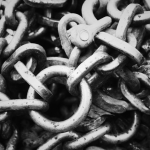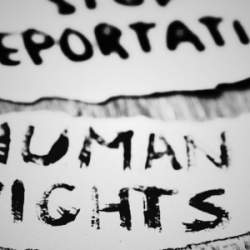
In today’s world, where extreme poverty and wealth coexist, the Lazarus story remains deeply relevant. It calls on individuals and societies to recognize the humanity of the poor, act with compassion, and build systems that reduce inequality—not just out of charity, but out of justice.
Future reversals of reward or punishment in an afterlife can be a strong motivation. I would rather live by a different motivation though. We can choose to be motivated to do the right thing by a deep belief in the value, dignity, and potential of every human being. Unlike moral systems based on afterlife consequences, we can consider the consequences of our actions in this life and choose to ground our ethics in reason, empathy, and a commitment to human welfare. We can choose to improve the conditions of those around us whose needs are not yet being met.
Welcome Readers! Please subscribe to Social Jesus Here.
This is Part 3 of The Rich Man, Lazarus and Justice
(Read this series from its beginning here.)
One of the strongest motivations beyond self-concern and afterlife threats is empathy: the ability to understand and share the feelings of others. When we see suffering, we can choose to allow ourselves to be moved not by religious obligation or fear of post mortem punishment, but by a genuine desire to alleviate pain and promote the well-being of those, like Lazarus, who are suffering now. If we let it, this emotional connection to others can drive us to act with kindness and integrity in this life.
Reason and critical thinking also play a part and are not always easy. Ethical decisions have to be based on evidence, and while reason should be rooted in empathy, it also involves carefully considering the consequences of various options. Doing the right thing often means weighing competing interests and making choices that lead to the greatest good for the greatest number of people. An ethical approach rooted in empathy encourages us to be fair to all who are involved and discourages selfish individualism.
We humans are responsible for each other, here, now, in this life. Whether we appeal to a higher power, an afterlife reversal, or post mortem punishments and rewards, the reality that we all can attest to is that we are accountable for the kind of world each of us helps to shape and create. The question is not what do we want to experience in the afterlife. It’s what kind of world do we want to live in, in this life! We can choose to act ethically if we believe that it is up to us to solve problems like poverty, injustice, and discrimination.
And ultimately this is what it means to live meaningful lives in the present. Doing the right thing contributes to a sense of purpose and personal integrity today. Caring for others and taking responsibility for making sure those around us also have what they need to thrive helps to build a society where we can all flourish through cooperation and a sense of our shared humanity. We are all connected. We are all part of one another.
Lastly, the Lazarus story reminds us that we can choose to do the right thing simply because we care. That is the question: not do we care about whether we will experience reward or punishment in an afterlife, but what kind of human do we want to be now. Do we care about others? Do we care about this world we share together, our home? Is only making sure that we are okay but not being concerned about whether others are too the kind of humans we want to be? How we answer these questions makes all the difference, not for a post mortem reversal, but right now, today.
Are you receiving all of RHM’s free resources each week?
Begin each day being inspired toward love, compassion, justice and action. Free.
Sign up at HERE.















